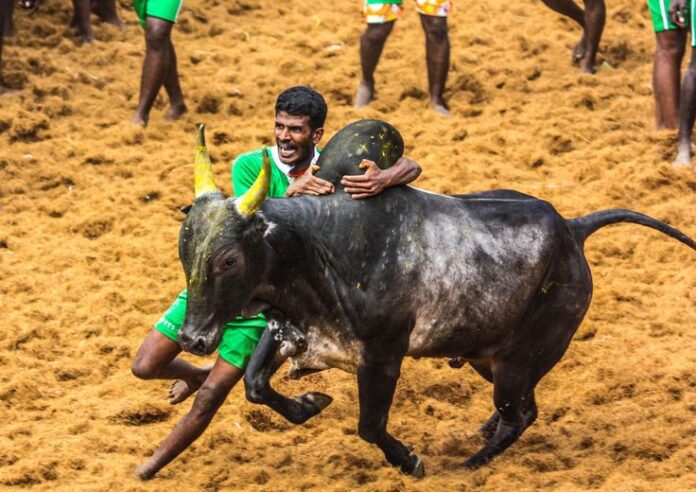In a significant decision, the Supreme Court of India upheld the legality of the Prevention of Cruelty to Animals (Tamil Nadu Amendment) Act of 2017 and the Prevention of Cruelty to Animals (Conduct of Jallikattu) Rules of 2017, thereby allowing the continuation of the traditional bull-taming sport known as Jallikattu in Tamil Nadu. The five-judge Constitution Bench, led by Justice K. M. Joseph, affirmed that Jallikattu has been a part of Tamil Nadu’s culture for over a century. However, the Court refrained from determining whether Jallikattu is an “integral” aspect of Tamil Nadu’s cultural heritage, asserting that such a question requires further study, representation, and public participation, rather than being resolved through judicial proceedings. Justice Aniruddha Bose, who authored the judgment, reasoned that the issue of cultural significance cannot be definitively answered in a writ petition and necessitates a broader examination. Justice Bose’s judgment emphasized that the 2017 Amendment Act and Rules aligned with Entry 17 (prevention of cruelty to animals) of the Concurrent List and Article 51A(g) (compassion to animals) of the Constitution.
The Court acknowledged that the Amendment Act substantially reduced the pain and cruelty inflicted on the animals involved in Jallikattu. It mandated strict adherence to the 2017 law, which introduced stringent safeguards to ensure the safety of both humans and animals during the sport. The Supreme Court stressed that any violation of the statutory law, even in the name of cultural tradition, would be subject to penal consequences. It clarified that cultural heritage cannot serve as a defense if the practice contradicts the law. The judgment, delivered on a batch of petitions challenging Tamil Nadu and Maharashtra laws permitting Jallikattu, asserted that the state legislation does not violate Articles 14 and 21 of the Constitution. The Court further noted that the right to live with dignity, as argued by the petitioners on behalf of the animals, does not override the provisions of the Amendment Act.
Regarding the determination of Jallikattu’s cultural heritage status, the Court opined that this decision is best left to the people of Tamil Nadu. It emphasized that a conclusive resolution on the matter cannot be reached through a court’s writ petition. The Animal Welfare Board, along with various petitioners, including People for the Ethical Treatment of Animals (PETA), challenged the laws allowing Jallikattu. Respondents included individuals and organizations associated with Jallikattu events, such as the Bull Owners Association. The Supreme Court’s ruling signifies a significant development in the Jallikattu debate, providing clarity on the legal framework and ensuring that the sport is conducted with stricter measures to prevent cruelty and ensure the well-being of animals and participants.


